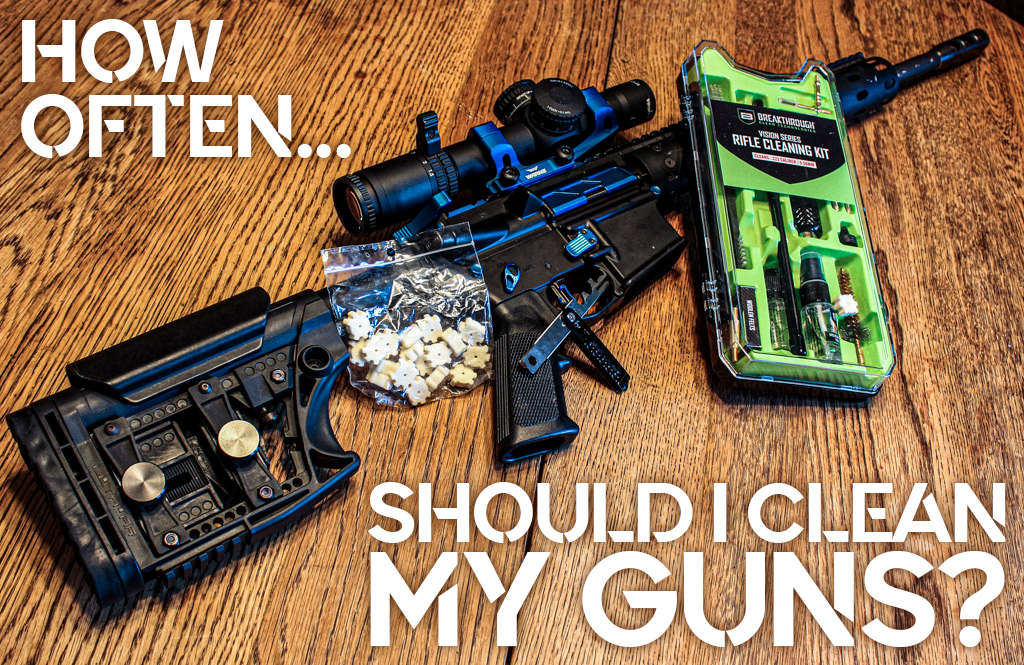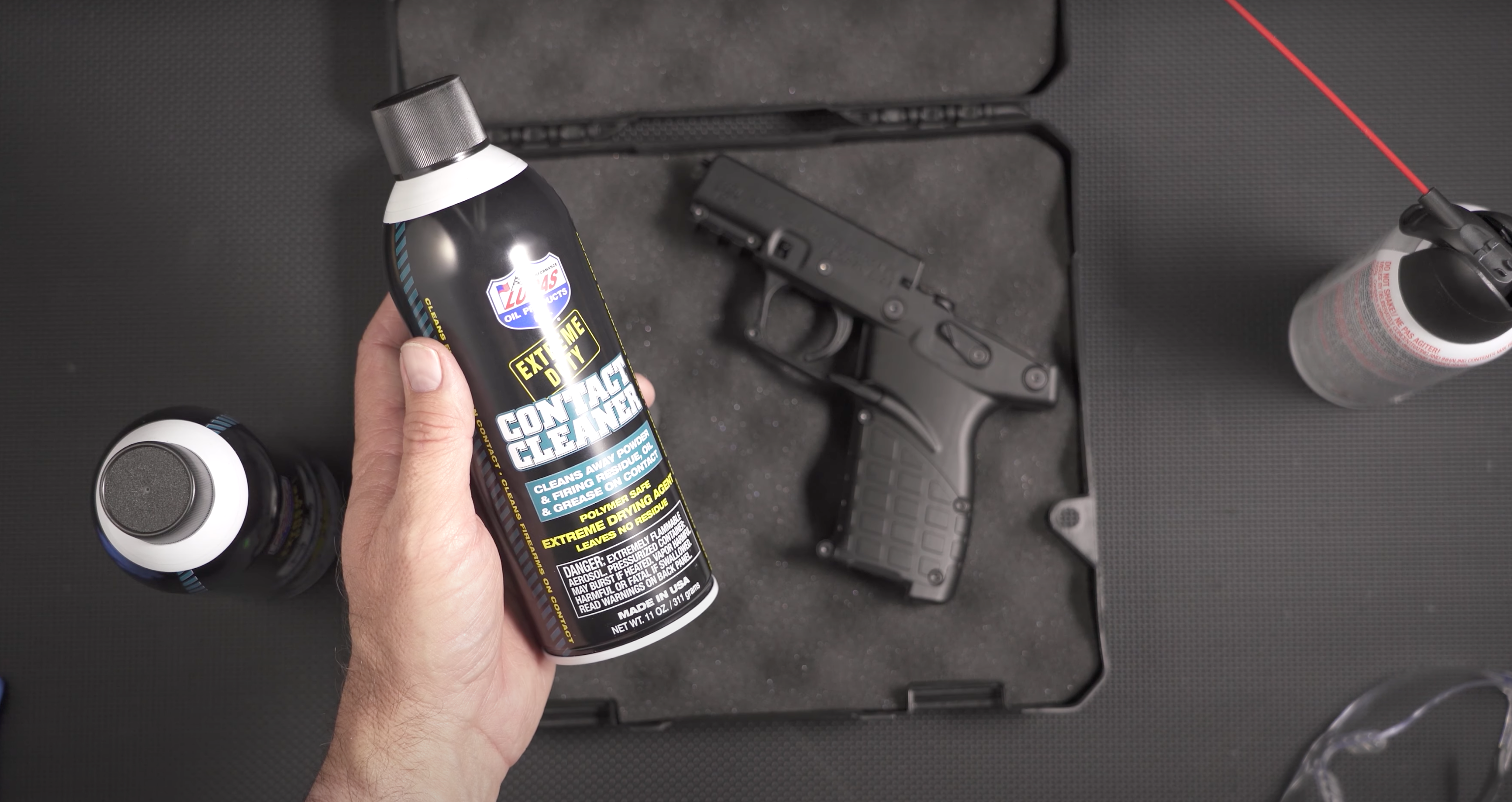Have you ever wondered if you can over clean your gun? It might seem like a strange question at first.
After all, isn’t more cleaning always better when it comes to maintaining your firearm? But what if there’s a point where your diligent cleaning might actually be doing more harm than good? Picture this: you’re ready to head out for a day at the range, but you’re left second-guessing whether your cleaning routine is helping or hurting your gun’s performance.
This dilemma isn’t just about keeping your gun shiny and spotless. It touches on the balance between performance, longevity, and reliability. Over cleaning could potentially lead to wear and tear, affecting how your gun functions. So, how do you find that sweet spot between too little and too much? As you read on, you’ll discover insights and tips that will help you make informed decisions about your gun maintenance routine, ensuring you get the best performance every time you pull the trigger.

Cleaning Frequency
Cleaning Frequency is a crucial aspect of gun maintenance that often sparks debate among firearm enthusiasts. How often should you clean your gun to maintain its functionality without overdoing it? Finding the right balance is key to ensuring your gun performs well while avoiding unnecessary wear. Let’s explore the nuances of cleaning frequency by examining daily versus occasional cleaning, and considering manufacturer recommendations.
Daily Vs. Occasional
Imagine you just returned from a long day at the range. You’re tired but also aware of the importance of cleaning your gun. Should you clean it immediately, or can you wait?
Daily cleaning might seem excessive to some, but for those who shoot regularly, it can be beneficial. It ensures your firearm is always ready for action. However, cleaning too frequently could lead to premature wear on certain parts.
On the other hand, occasional cleaning, performed after several uses, allows for a more balanced approach. It reduces the risk of over-cleaning while still maintaining the gun’s performance.
Consider your shooting habits. If you’re a daily shooter, more frequent cleaning might be necessary. If you use your gun less often, occasional cleaning can suffice.
Manufacturer Recommendations
Manufacturers know their guns best. Their recommendations often provide valuable insights into optimal cleaning frequency.
Consult your gun’s manual. It usually contains specific guidance on how often to clean, based on your usage. This can prevent over-cleaning and ensure longevity.
Some manufacturers advise cleaning after every use, while others suggest a more relaxed schedule. These guidelines are tailored to the design and materials of your gun.
Trust these recommendations but also consider your environment. Dusty conditions might require more frequent cleaning compared to a controlled indoor range.
So, how often do you clean your gun? Could adjusting your routine enhance your firearm’s performance and lifespan?
Potential Risks
Your gun is a crucial tool that requires regular maintenance to function properly. However, have you ever wondered if you could be cleaning it too much? Over-cleaning your firearm might seem harmless, but it can lead to unexpected issues. Let’s explore the potential risks associated with excessive gun cleaning.
Wear And Tear
Frequent cleaning can cause significant wear and tear on your firearm. Scrubbing too hard or using abrasive materials can scratch the surface of your gun. These scratches aren’t just cosmetic; they can also affect the functionality of your weapon over time.
Imagine cleaning your gun with such enthusiasm that you start wearing down the protective finish. This finish is there for a reason—to protect the metal underneath from rust and corrosion. By over-cleaning, you might inadvertently remove this layer, leaving your gun vulnerable to environmental damage.
So, ask yourself: Are you helping or harming your firearm by cleaning it excessively?
Damage To Components
Excessive cleaning can also lead to damage to the internal components of your gun. Delicate parts like springs and pins can become damaged if handled too aggressively. This isn’t just an inconvenience; it can lead to malfunction when you need your firearm the most.
Consider the possibility of over-lubrication. Too much oil can attract dirt and debris, leading to a buildup that can jam the action of your gun. A well-functioning firearm requires a balance—clean, but not overly cleaned.
Think about this: Is your cleaning routine ensuring reliability or risking performance?
Remember, a firearm is a precise tool. Treat it with care and thoughtfulness. Recognize the signs of over-cleaning and adjust your routine accordingly. Your gun’s longevity might depend on it.
Signs Of Over Cleaning
Cleaning your gun is crucial for its performance. But too much cleaning can be harmful. Over cleaning can lead to several issues. It’s important to recognize the signs. This will help maintain your firearm’s longevity and efficiency.
Visible Wear
Excessive cleaning can cause visible wear. You may notice scratches on the surface. The finish may appear dull or faded. Frequent scrubbing can strip protective coatings. Metal parts might show signs of erosion. Regular inspection is essential to spot these issues.
Decreased Performance
Over cleaning can affect your gun’s performance. You might experience misfires or jams. Accuracy can decrease over time. Parts might not fit properly due to wear. Lubricants may be stripped away, causing friction. Be mindful of your cleaning routine to avoid these problems.
Proper Cleaning Techniques
Proper cleaning techniques keep your gun in top condition. Cleaning your firearm regularly is essential. But over-cleaning can lead to damage. Knowing the right methods helps maintain your gun’s performance and longevity. Let’s explore the best practices to clean your gun effectively.
Use Of Appropriate Tools
Using the correct tools is crucial for proper gun cleaning. A cleaning rod, brush, and cloth are basic necessities. Ensure the rod is the right size for your gun’s barrel. Use a bore brush to scrub the inside gently. A soft cloth can wipe away residue without scratching. Choose tools made of materials that won’t harm your gun. Quality tools prevent wear and tear.
Avoiding Harsh Chemicals
Harsh chemicals can damage your gun’s finish and metal parts. Use gun-specific solvents and oils. They are designed to clean without causing harm. Always read the labels before applying any product. Test a small area first to ensure safety. Regular oils and solvents help maintain your gun’s integrity.
Balancing Maintenance
Maintaining your firearm is crucial for safety and performance. Yet, over-cleaning can be harmful. Finding the right balance ensures longevity and reliability. Cleaning too often may wear parts prematurely. Knowing when and how much to clean is essential.
Finding The Right Schedule
Every firearm has unique needs. Usage and environment affect cleaning frequency. Regular users should clean more often. Occasional shooters might need less frequent cleanings. Establish a routine based on your usage pattern. A consistent schedule helps avoid neglect and over-maintenance.
Consider climate conditions. Humid areas may require more frequent cleaning. Dry environments may allow for longer intervals. Tailor your schedule to these factors for optimal maintenance.
Listening To Expert Advice
Experts offer valuable insights into firearm care. They understand the nuances of different models. Seek advice from experienced gunsmiths or instructors. Their recommendations often consider manufacturer guidelines and practical experience.
Online forums and communities can provide insights as well. Engage with others who use similar firearms. Their experiences can guide your maintenance practices. Always evaluate advice critically, ensuring it suits your specific needs.

Alternative Maintenance Practices
Gun enthusiasts often debate the best way to maintain their firearms. Over-cleaning can lead to unnecessary wear and tear. Alternative maintenance practices can help keep your gun in top condition without over-cleaning.
Lubrication Tips
Proper lubrication is crucial for firearm health. Use quality gun oils designed for your gun type. Apply oil sparingly to moving parts. Avoid excessive application to prevent dust and debris buildup. Regularly check lubrication levels. A light coating is usually sufficient.
Storing The Gun Safely
Proper storage extends the lifespan of your firearm. Store guns in a dry, secure location. Use gun safes or cabinets to prevent unauthorized access. Consider using dehumidifiers to control moisture levels. Moisture can lead to rust and damage. Regularly inspect storage conditions to ensure safety.

Frequently Asked Questions
Can Cleaning A Gun Too Often Cause Damage?
Yes, over cleaning can lead to wear and tear. Excessive scrubbing might damage the gun’s finish or components. Regular maintenance is crucial, but avoid overdoing it. Follow manufacturer guidelines to ensure your gun remains in optimal condition without unnecessary harm.
How Often Should You Clean Your Gun?
Clean your gun after every use to prevent residue buildup. Routine cleaning helps maintain performance and longevity. If unused, clean every few months to prevent dust and moisture damage. Always consult the manufacturer’s recommendations for specific cleaning intervals.
What Are Signs Of Over Cleaning A Gun?
Signs include fading finish, loose parts, or excessive wear. If your gun appears less smooth or functional, it might be over cleaned. Regular checks and manufacturer guidance help prevent these issues. Proper cleaning techniques ensure your gun stays in top shape.
Can Improper Cleaning Affect Gun Accuracy?
Yes, improper cleaning can affect accuracy. Residue buildup can lead to inconsistent shots. Use correct techniques and tools to maintain precision. Regular maintenance ensures your gun performs reliably, allowing for accurate and safe shooting experiences.
Conclusion
Keeping your gun clean is crucial, but moderation is key. Over-cleaning can lead to unnecessary wear. Use the right tools and methods. Balance is essential for your firearm’s longevity. Regular checks can help identify issues early. Cleaning should enhance, not hinder, performance.
Follow the manufacturer’s instructions closely. They know best. Your gun deserves care and attention. Handle it wisely. Avoid excessive cleaning. Maintain its efficiency and reliability. A well-maintained gun ensures safety and precision. Remember, less can sometimes be more. Keep your firearm in top shape with mindful care.

